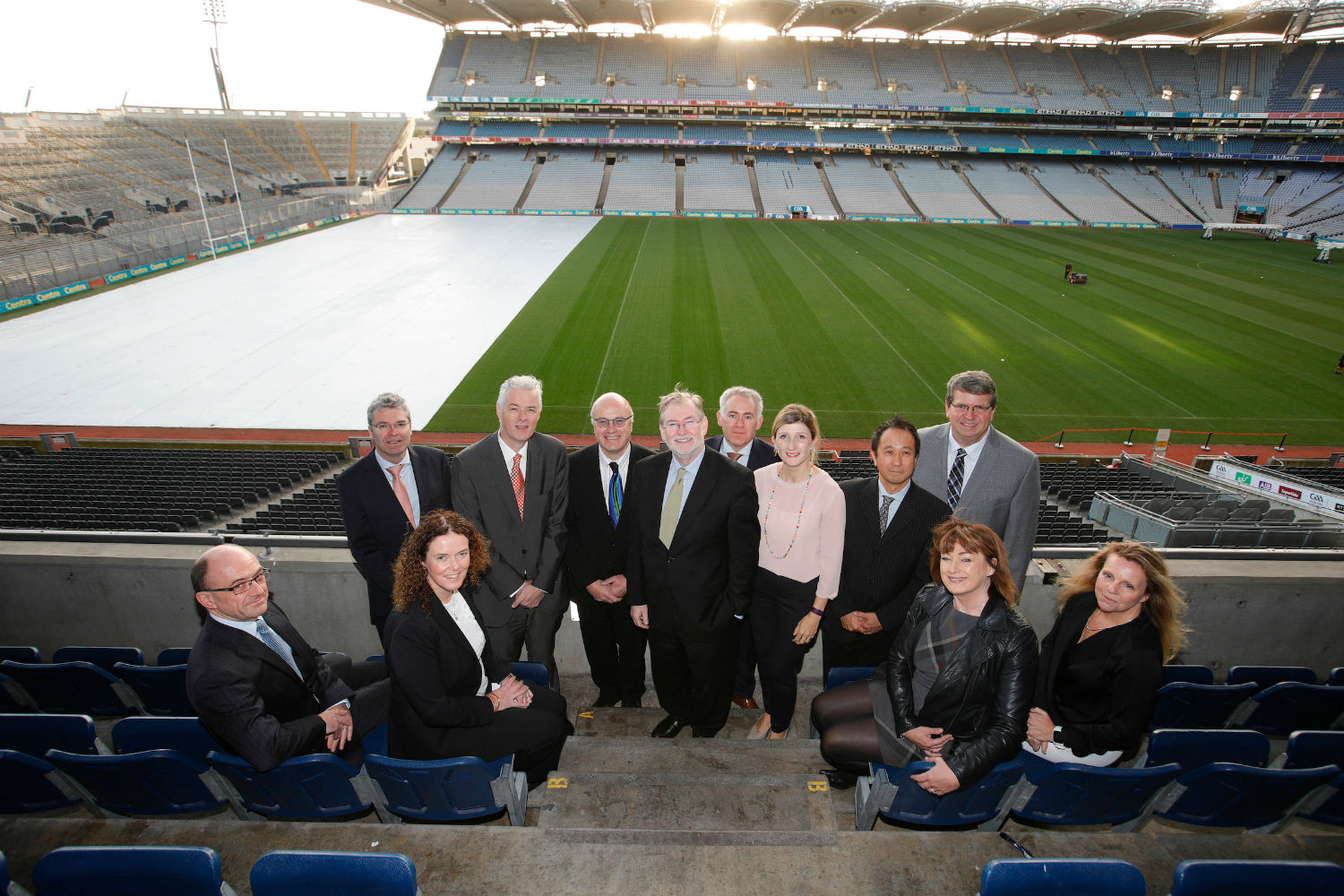
Tyndall National Institute Technology Day Showcases a IoT and connectivity devices and solutions for future
.jpg)
From factories of the future to sensor-led Internet of things solutions, Tyndall National Institute drew world leaders and international attendees to its Industry Day showcase today in Croke Park, Dublin.
“The growing number of internet-enabled devices, coupled with increased data storage requirements has driven a need for new ways to generate and manage connectivity and power for commercial and personal use technologies,” said Dr. Kieran Drain, CEO of Tyndall National Institute to an audience of over 300 global technologists, researchers and leaders in the area of IoT, energy and connectivity.
“We have no doubt that innovations currently under development at Tyndall will be used in household and commercial applications in a near future where trillions of sensors are communicating with each other and with us to link our homes, offices and factories to enable a smart, efficient and secure world.”
One of the technologies showcased at Tyndall’s Industry Day explores a new way to use optical fibre to build a simplified broadband network to serve rural and urban areas with ultra high speed connectivity. Discus, the pan European project led by Trinity College Dublin, UCC and Tyndall, could see significant increases in speed, coupled with a very significant reduction in the number of switches and exchanges traditional required.
Speaking at the Tyndall Technology Day, Prof. Paul Townsend, Head of Photonics at Tyndall and Centre Director of IPIC said, “The research and development of these technologies is vital to enable our ‘smart world’ to function efficiently and sustainably in the future. While our connectivity needs continues to grow rapidly due to the number of IoT devices, energy requirements become as important as high speed and ubiquitous connectivity. These global issues are to the fore of the Tyndall Industry Day here in Dublin, and provide a necessary showcase, diverse expertise and networking for leaders in innovation.”
.jpg)
Global speakers presenting at the Tyndall Industry Day included Katsu Nakamura, Analog Devices CTO Healthcare-Consumer-Business IoT Unit and Steve Moffatt, CTO Applied Materials as well as Johnson Control’s Lead Technologist Denis Canty, Mark Bannon CEO of VT Networks and Qualcomm’s VP of Engineering, Francesco Carobolante and leaders from Tyndall, IERC, IDA and Science Foundation Ireland among others.
“The tight and synergistic relationship between research being developed at Tyndall National Institute and the world’s leading technology players is evident here in Croke Park today. Home to passionate and great players on the field, today’s event sees innovative research matched with inspirational minds to create remarkable results for all our futures,” added Dr. Kieran Drain, CEO Tyndall National Institute.
Tyndall National Institute and Boston Scientific are currently collaborating on a H2020 Factories of the Future project. The expertise provided by Tyndall researchers will enable factory wireless sensors to read data and provide the supply chain with product and energy optimisation solutions. In this ‘future factories’ scenario, highly complex manufacturing processes from inventory tracking, cycle time, production planning and forecasting become streamlined and accurate to the minute. Trialing of this solution at Boston Scientific, leveraging Tyndall hardware, simulation tools and system integration expertise, will pave the way for a semi-automatic ecosystem, using wireless sensors, interlinking both the supply and value chains in the factory and also between varied manufacturing locations. The EU funded project, called COMPOSITION, is co-ordinated by Fraunhofer FIT with 12 project partners and will run over a 3 year period.
